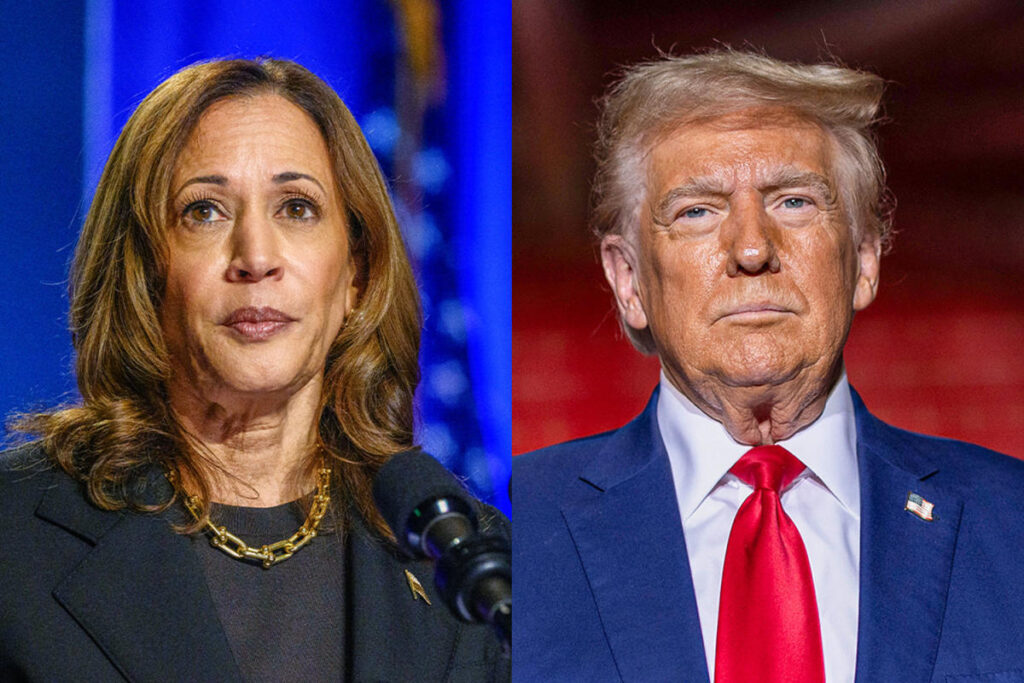In the lead-up to the November presidential election, NBC News conducted a poll revealing that voters are largely dissatisfied with the current state of the nation, with many expressing a desire for “change.” The findings spotlighted a split electorate; two prominent candidates, Kamala Harris and Donald Trump, each claim to represent the change voters are yearning for. Harris, the sitting Vice President, appears to have a slight edge over Trump, a former President, in terms of who voters believe better embodies change. The poll results indicate that a significant 66% of individuals believe the country is moving in the wrong direction, while two-thirds of the surveyed participants feel that their family incomes are not keeping pace with the cost of living.
Harris is viewed as a preferable change candidate by 47% of voters, while 38% favor Trump for this distinction. However, the concept of change is nuanced; although Harris has an advantage in representing change positively, voters express concerns about her continuing President Biden’s policies, a sentiment shared by 40% of participants. Conversely, 39% fear Trump would revert to his past policies, leading to divided sentiments regarding which candidate could genuinely facilitate a meaningful shift in the political landscape. This duality illustrates the electorate’s complexity, with many feeling trapped between the past and a potential future marked by dissatisfaction.
In their open-ended responses about the kind of change they seek, Harris supporters emphasized personal qualities such as competency, reduced division, and a return to “normalcy.” There is a palpable desire among her supporters to move beyond Trump’s influence in politics altogether. Respondents noted that Harris represents a “positive change,” embodying a semblance of stability that many associate with the Biden administration. This view underscores the narrative of Trump as a disruptive force in American politics, with some voters stating that defeating him would signify a crucial step towards healing the national divide.
On the opposite side, Trump voters articulated their demands for change primarily through policy concerns related to inflation and border security. There is a strong yearning for a sense of safety and direction under Trump’s leadership. For these voters, a return to Trump represents a correction of the course they believe the country has veered off. The emphasis on security resonates deeply with this demographic, which seeks policies that reflect their values and address pressing economic issues. This differentiation in priorities reveals how varied the concept of “change” can be based on individual experiences and expectations.
Despite the clear divide between supporters of both candidates, a segment of the electorate remains skeptical about the potential for meaningful change following the election. Some respondents expressed a belief that the political landscape has been irrevocably altered and that irrespective of the outcome, fundamental problems within the country may continue to persist. This sentiment points to a growing disenchantment with the political system as a whole, highlighting that many individuals are disillusioned with the efficacy of either candidate in bringing about substantial improvements in their lives and communities.
Ultimately, the upcoming election will serve as a significant referendum on the leadership styles and policies represented by both Harris and Trump. While many voters seek change in varied forms—be it personal attributes, policy reforms, or economic stabilization—the challenge remains to bridge the deep divides within the electorate. The sentiments expressed in the poll reflect a broader national conversation about the future direction of the country and encapsulate the complexities of the American voter landscape, leaving both candidates facing the daunting task of delivering on promises of change amidst a backdrop of rising tensions and uncertainty.

